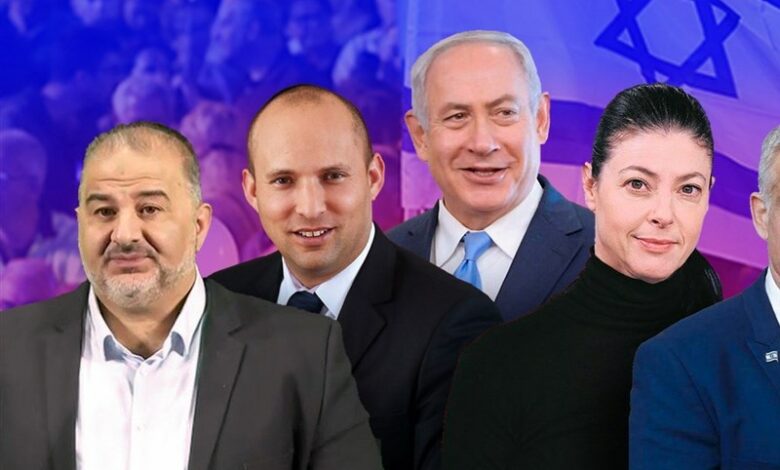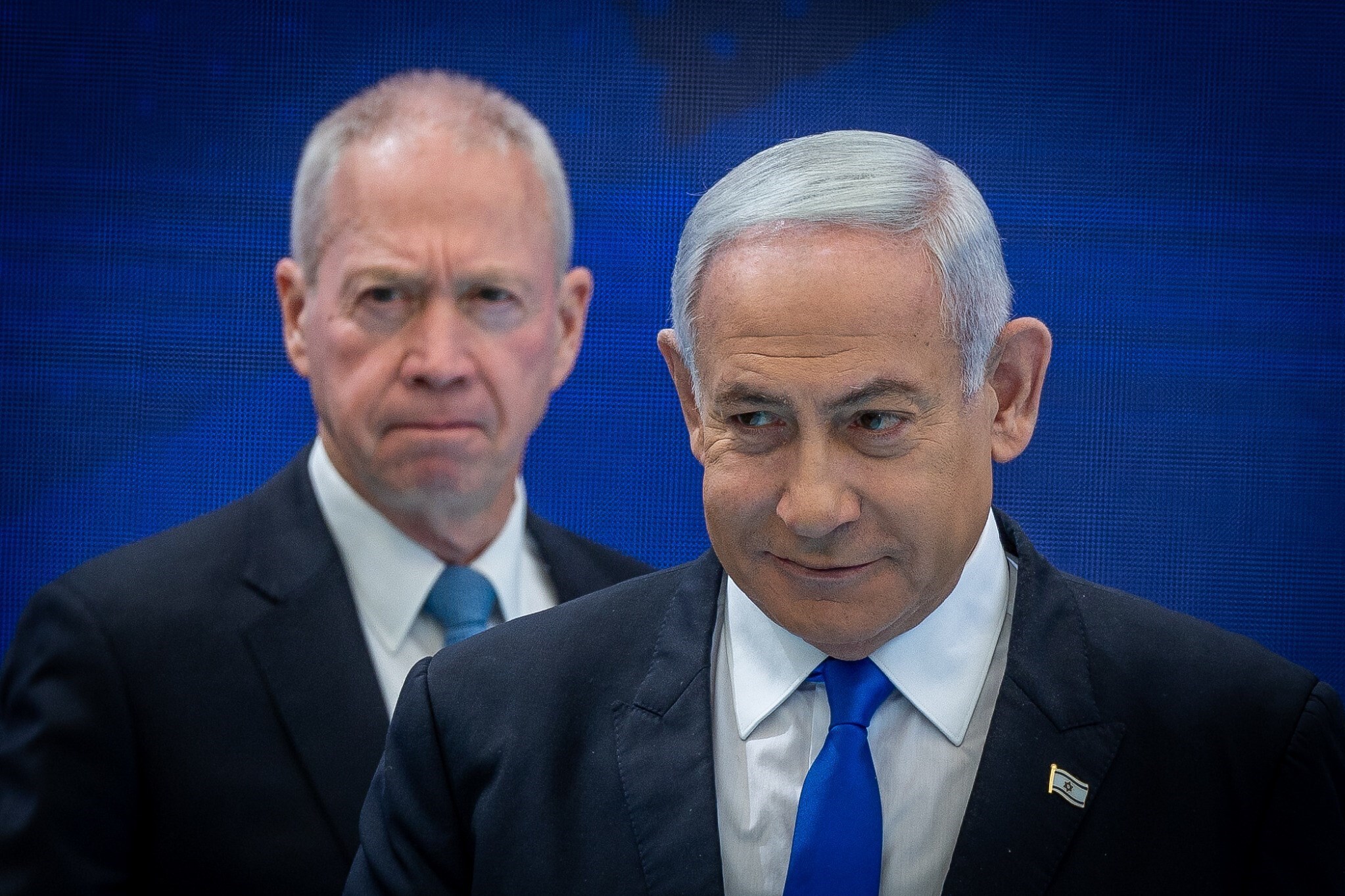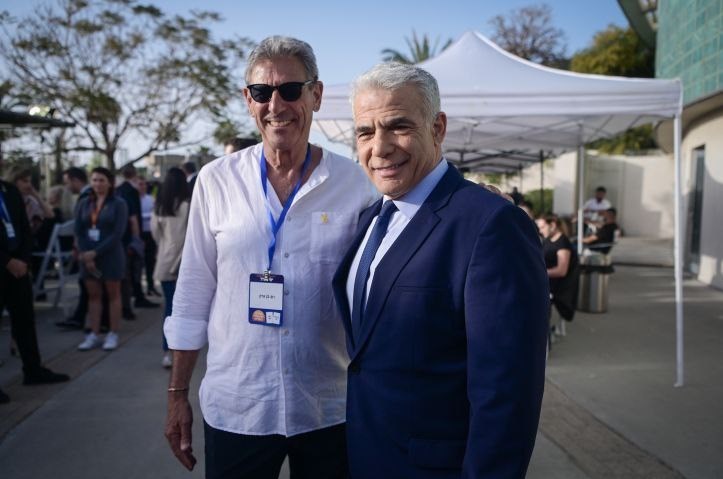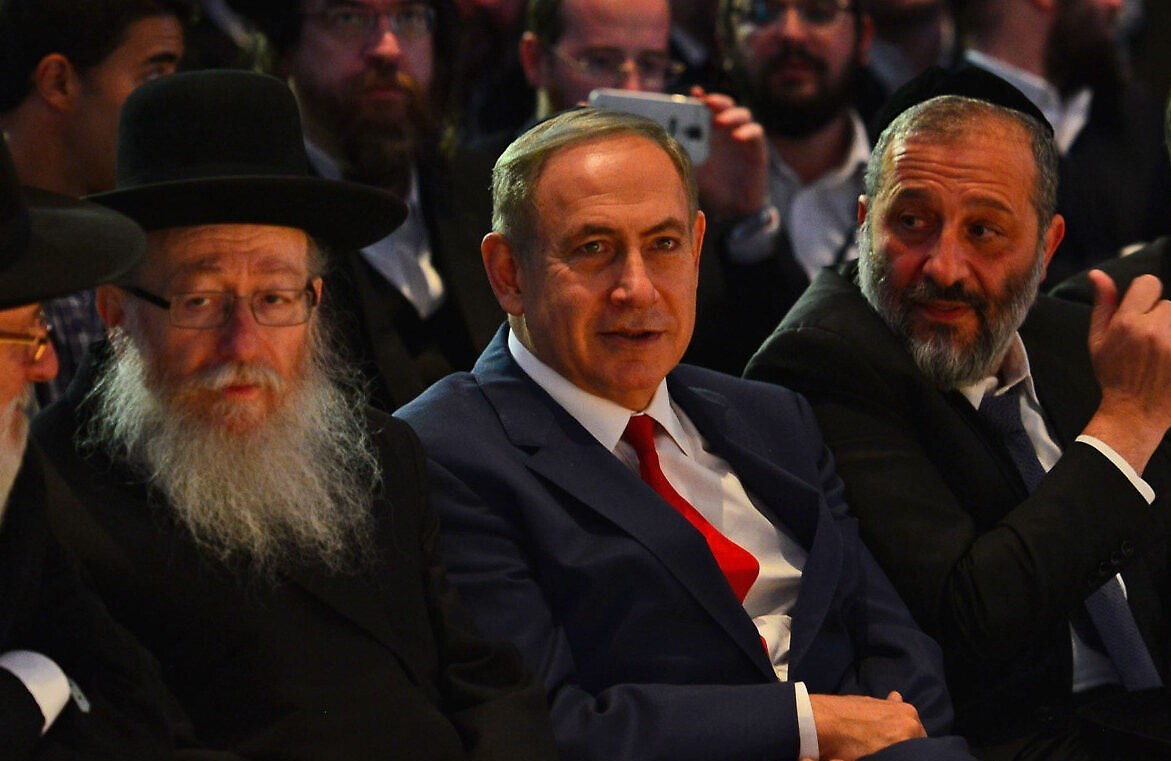The latest state of political developments in Israel; Netanyahu on the edge of the abyss

| An overview of the developments in the internal politics of the Zionist regime at the same time as entering the seventh month of the Battle of al-Aqsa shows the fact that the position of Benjamin Netanyahu and his party in the political structure of the Zionist regime is declining day by day. |
According to the report of the international group Tasnim news agency, in While the war between the Zionist regime and the resistance groups has entered its seventh month in a row, political developments and competitions continue in the occupied territories. The most important political news in March 2024 (March 1402 and April 1403) was the departure of Gideon Saar, the leader of the New Hope party, from the coalition with Benny Gantz. , Minister of Finance and Itamar Ben Guer, Minister of Internal Security of the Zionist regime, were dissatisfied with the war management process. Of course, it seems that because the war cabinet was limited to three people and most of the credit from the war went to Benny Gantz and Yoav Gallant, the Minister of War, they wanted to change its composition and enter this cabinet. After breaking away from the internal unity coalition led by Gantz, Saar asked to be a member of the war cabinet. Saar’s next move was that he resigned from the emergency cabinet 10 days later due to ignoring this request and joined the opposition movement.
Saar’s separation from Gantz, although it reduced the number of seats of Gantz’s coalition, but did not change the strong position of this coalition at the top of the table. The internal unity coalition, which won more than 35 seats in the polls before Saar’s separation, is currently fluctuating between 32 and 36 seats after this event. But Sa’ar, who hoped to attract a part of the right-wing disaffected from Likud to the New Hope Party after separating from Gantz, has so far successfully won between 4 and 6 seats in the polls. Saar also reconsidered the position he took two months ago in opposing the dissolution of the cabinet and announced that he wants to hold early elections. Saar’s exit from the emergency cabinet has also increased the desire to hold early elections. Jangi opposed. Undoubtedly, Saar’s entry into this cabinet would increase his popularity and decrease Gantz’s popularity. After this development, Gantz took a more direct approach towards Netanyahu’s cabinet and last week officially announced that the Israelis’ lost trust in the Israeli cabinet should be restored through an early election. Gantz also considered September 2024 as a suitable time for these elections. src=”https://newsmedia.tasnimnews.com/Tasnim/Uploaded/Image/1403/01/21/14030121170738206297828410.jpg”/>
The situation of Yesh Atid party and its leader Yair Lapid, after holding the first intra-party elections on March 28, 2024, has slightly improved as expected. Before voting for its leadership seat, this party had taken a downward trend in the polls and won an average of 10-12 seats (about 10 seats less than its reserves in the last election). But in all 4 polls held after this election (in which Lapid won by a small margin of 52.5% over Ram Ben Barak with 47.5% of the votes), this party won more than 13 seats, which shows the relative improvement of Yesh Atid’s situation in It has public opinion. Undoubtedly, Yash Atid’s increase in popularity will be to Gantz’s disadvantage, considering the voter base mostly shared with Gantz’s internal unity coalition. style=”text-align:center”>
Nevertheless, it should be considered that usually in any poll that the middle faction (consisting of Yesh Atid and Gantz’s coalition) will win more than 40 seats, the pro-Netanyahu faction will not be able to win. The central faction still has 45 seats in various polls. Therefore, it can be said that this faction is still in the center of attention of the Zionists, and the faction supporting Netanyahu has not succeeded in reviving its position.
Another important event in The political sphere of Israel is the relative growth of the votes of the Israel House Party led by Avigdor Lieberman. Lieberman, who has faced Netanyahu since 2018 and joined the ranks of his opponents, has made important changes in recent years. In the past, Lieberman’s strong anti-Arab tendency made many consider him an “extreme right-wing” figure, but Lieberman’s membership in the so-called change cabinet with the presence of Mansour Abbas, the leader of Ram Party, has moderated Lieberman’s anti-Arab tendency.
From a political and economic point of view, Lieberman and his party are in the “center-right” faction. In the current situation, the increase in the popularity of Lieberman’s party, which won 6 seats in the last election, to about 10 seats, shows that the Zionist community is trying to find a right-wing alternative to Netanyahu. In this situation, if Naftali Bennett, the former prime minister, returns to the political competition, or Yossi Cohen, the former head of the Mossad, enters politics, part of the stray votes separated from Netanyahu and the Likud party will move towards them. In fact, if Bennett, Cohen and Saar form a single list for the possible early elections, they could probably present an attractive bloc to the audience that is both different from Netanyahu and does not move too far towards the policies of the middle wing.
Religious wing and the extreme right
the religious wing that engages in political activity with the two Shas parties led by Aryeh Darei and United Torah Judaism led by Isaac Goldkenpov In the occupied territories, it is almost the only faction of the ruling coalition that suffered the least damage as a result of the October 7, 2023 attack. After the start of the war, this faction has fluctuated between 14-18 seats in polls. The only thing that has put a little pressure on these parties is the issue of calling the Haredis to compulsory military service, which has become a hot topic in the occupied territories, especially due to the prolonged war and the extreme fatigue of the reserve forces. A large part of the society wants this population to be called up for military service, but the presence of their representative parties in the ruling coalition made the current law consider many exemptions for the Haredis.
In such a situation, if Netanyahu’s cabinet wants to accept the desire of 70-80% of the Zionist community to cancel the exemptions of this group, it will definitely do so. Religious parties will lose support and fall. The opposition forces are also well aware of this weakness of Netanyahu and they are trying to turn this issue of Haredi soldiers into a turning point to intensify the crisis in the ranks of Netanyahu’s coalition cabinet.
But the extreme right wing of Israel, which consists of two parties, “Religious Zionism” led by Betsalel Smutrich and “Jewish Power” led by Itamar Ben Goyer, also faced many problems during the battle, which weakened this faction. Is. In the last election, which presented a single list for competition, this faction managed to win 14 seats, which was unprecedented.
Until before Since the beginning of the war, the two far-right parties have been one of the most active parts of the ruling coalition and have presented an ambitious plan to change the laws, which include “the official annexation of the West Bank”, “the Judaization of the Arab areas of the Negev and the Galilee” and “determining the death penalty for the perpetrators of the operation”. Anti-Zionist” were among them. But the start of the war on October 7th caused the leaders of this faction to face contradictions. First, the formation of a three-person war cabinet prevented them from making direct decisions in war management; This was while the leaders of this faction did not agree with many decisions of the war cabinet.
But the first major contradiction of this faction occurred at the end of November 2023, when a 7-day ceasefire was on the table of the Israeli cabinet. The extreme right wing opposed this decision and Ben Guer voted against it, but Smutrich, despite his strong opposition to the temporary truce at the beginning, finally agreed to its implementation. This change of position did not go well with the supporters of the extreme right wing, and since then, the religious Zionist party faced a sharp drop in the polls and is struggling with a quorum of 3.25%, and in many polls, it is not even able to enter the parliament. In fact, this faction fluctuates between 9 and 14 seats in the polls, which is a very large range.
Left and Arab wing
It is expected that with Golan’s leadership, this party will be able to stabilize its position in the polls and in If it is decided to hold early elections, the two left-wing parties of Israel should form a single electoral list led by Golan in order to maintain their survival. The left wing also obtains between 4-10 seats in the polls with a large swing interval. Of course, in most polls, 4-5 seats are reserved for this faction, and if the above process is completed, we can count on winning 10 seats for this faction.
The Arab parties, like the left wing, are not in a good situation at the moment; From the previous joint Arab list, which was a gathering of four important Arab parties, only two parties, Khodash and Taal, operate in a coalition, and the two parties Ram, led by Mansour Abbas, and Balad, led by Sami Abu Shehadeh, have become independent.
Ram party, which was a member of the previous coalition led by Lapid and Bint Taboui, after 70 years of Arab participation in the coalition, has managed to win between 4-5 seats in most polls. keep Godash-Taal coalition has also kept the same 5 seats of the last election for itself during the war. However, Beled Party has always remained below the threshold in the polls and failed to win 3.25 percent of the votes. But it is not clear if after the end of the war, the holding of an early election is decided, with the anti-Israeli atmosphere formed among the Arabs, 48 this party will be able to get the necessary votes to enter the Knesset alone. We must not forget that Beled Party failed to enter the Knesset in the November 2022 elections with a margin of only 16,000 votes. The Arab faction has 10 seats, and this reserve can increase to at least 15 seats if a joint list is presented between the three parties, Balad, Khodash, and Taal.
end of message/
| © | Webangah News Hub has translated this news from the source of Tasnim News Agency |








